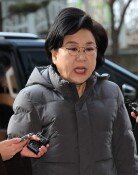Economy minister highlights the need to reform regulations and corporate tax
Economy minister highlights the need to reform regulations and corporate tax
Posted May. 28, 2022 07:35,
Updated May. 28, 2022 07:35

Deputy Prime Minister and Minister of Economy and Finance Choo Kyung-ho vowed to bolster weakened growth potential of the Korean economy through a government-wide overhauling of regulations and improving corporate taxes, at 2022 Dong-A International Finance Forum on May 26. The 2021 Nobel Laureate in economics and Professor David Card at the University of California, Berkeley, pointed out that the stalled economic growth in Korea is attributable to low birthrate and population aging that are worsening most rapidly in the world, and came up with concrete solutions, such as intensive nurturing of young talents in science and engineering.
A falling growth potential, one of the main items for discussions at the forum, is the biggest challenge that the Korean economy is faced now. In the 2021 report, the OECD projected that, without any extraordinary policy measures, the current potential growth of around 2% will fall to under 1%. The myth that the economic growth rate goes down by 1 percentage point every five years is turning out to be true, despite several rounds of transfer of power.
An old approach of “Galapagos Islands Regulations,” only existent in Korea, and corporate taxes higher than other advanced countries are pointed out as the key factors getting in the way of business activities and hindering potential growth. This is why Minister Choo vowed on the day to “take off all sandbags that are weighing down companies’ autonomy, creativity and enthusiasm, along with financial supports including tax benefits.”
The country’s economic challenges brought up by Professor Card raise awareness on the need for regulatory reform. He added that “unlike in other countries, where highly educated people are more likely to get a job, Korea is going backwards with a staggering 20-30% of young people not getting jobs after college.” While the number of young people is shrinking due to low birthrates and aging population, young talents are lying idle because of the education system that has nothing to do with seeking a job. Dr. Card underlined the importance of intensive nurturing of talents in the STEM field, but the reality in Korea is that it cannot supply the workforce in the areas of semiconductor, electric vehicle and battery that lack manpower, due to the regulations on university quota.
Korea University Professor Lee Jong-hwa described the current situation of Korea’s economy as a man driven to the last extremity, meaning that we must move forward overcoming the triple crisis of low growth, high inflation and polarization. For the past few days, the top 10 corporations promised to invest 1,055.6 trillion won and create 400,000 jobs within five years, along with Samsung Electronics announcing a 450 trillion-won investment plan. This is a priceless opportunity for the country to vitalize its lagging growth engine that has been only just enough to make the country join the ranks of advanced nations.







